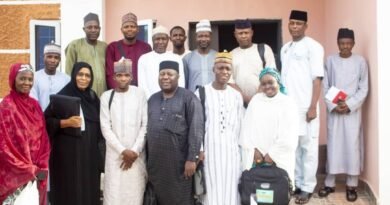Tinubu establishes Presidential Committee to Reform Tax System
In a move aimed at removing barriers to business growth, President Bola Tinubu has given his approval for the formation of a Presidential Committee on Fiscal Policy and Tax Reforms.
Dele Alake, the Presidential Adviser on Special Duties, Communications, and Strategy, announced this development in Abuja on Friday.
The committee, which will be chaired by Taiwo Oyedele, the Fiscal Policy Partner and Africa Tax Leader at PriceWaterhouseCoopers (PwC), consists of experts from both the private and public sectors. Its main responsibilities will include tax law reform, fiscal policy design and coordination, harmonization of taxes, and revenue administration.
Adelabu Adedeji, the Special Adviser to the President on Revenue, explained that Tinubu recognizes the significance of establishing a sound fiscal policy environment and an effective taxation system for the government and the economy.
Adedeji pointed out that Nigeria ranks poorly in terms of the global ease of paying taxes, and the country’s Tax-to-GDP ratio is one of the lowest worldwide and below the African average.
“This low tax revenue has led to heavy reliance on borrowing to finance public spending, which, in turn, limits the fiscal space as debt service costs consume a significant portion of government revenue”
“Consequently, there is a vicious cycle of inadequate funding for socio-economic development. Although some progress has been made in recent years, it has not been transformative enough to change the current narrative” according to Adedeji.
He outlined several key challenges facing Nigeria’s tax system, including multiple taxes and revenue collection agencies, a fragmented and complex tax system, low tax morale, high prevalence of tax evasion, high cost of revenue administration, lack of coordination between fiscal and economic policies, and poor accountability in the utilization of tax revenue.
Adding that the establishment of the committee reflects Tinubu’s commitment to addressing these challenges and implementing transformative reforms in fiscal policy and taxation.
The primary objective of the committee is to improve revenue collection, ensure transparent reporting, and promote the effective utilization of tax and other revenues, thereby boosting citizens’ tax morale, fostering a healthy tax culture, and driving voluntary compliance.
“These efforts are expected to not only enhance Nigeria’s revenue profile but also create a more conducive and internationally competitive business environment. The committee also aims to achieve a minimum Tax-to-GDP ratio of 18% within the next three years, without stifling investment or economic growth” Adedeji stated.
He emphasized that the committee would not only advise the government on necessary reforms but also take an active role in implementing those recommendations, supporting the comprehensive fiscal policy and tax reform agenda of the current administration.
The committee will be led by Mr. Oyedele, who chairs the Taxation and Fiscal Policy Faculty Board of the Institute of Chartered Accountants of Nigeria (ICAN) and serves as a member of the Nigerian Taxation Standards Board.
He is also a member of the Ministerial Committee overseeing the implementation of Nigeria’s National Tax Policy.





